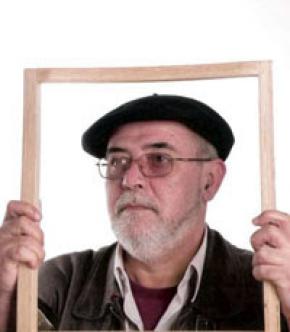Categories: Literature Archive, Mozambique
Ungulani Ba Ka Khosa, whose Portuguese name is Francisco Esaú Cossa, was born in 1957 in Inhaminga, in the province of Sofala. Speaker of Tsonga, Khosa attended primary school in Sofala and secondary school in the province of Zambézia. He holds a Bachelor’s degree in History and Geography from the Eduardo Mondlane University in Maputo. After the independence, Khosa became a school teacher and worked for the Ministry of Education. He is now the Director of the Instituto Nacional do Livro e do Disco (National Institute of the Book and Disc). His literary career started with his participation in the literary magazine Charrua and the publication of his first novel Ualalapi (1987). Since then he published three more novels — No Reino dos Abutres (In the Kingdom of Vultures, 2002) ...
Categories: Literature Archive, Mozambique
Paulina Chiziane was born in Manjacaze, in the southern province of Gaza, in 1955, in a chope family. In her early childhood, she moved to Lourenço Marques to study in a catholic school, where she learned Portuguese. During the anti-colonial struggle carried out by FRELIMO, she joined a youth liberation group. After the independence, she worked in the Ministry of Health and in the Ministry of Agriculture. In 1985 she joined the Red Cross to help people during the post-independence conflicts that were affecting Mozambique. Chiziane’s career as a writer started in 1990 when she published the novel Balada de Amor ao Vento [Ballad of the Love to Wind]. Since then, she published four novels Ventos do Apocalipse [Winds of the Apocalypse] (1993), O Sétimo Juramento [The Seventh Oath] (2000), Niketche ...
Categories: Literature Archive, Mozambique
 Luís Carlos Patraquim, poet, journalist, literary critic and cinema screenwriter, was born in 1953 in Lourenço Marques, where he attended the primary and the secondary school. At the age of 16, he started to collaborate in the youth column of the newspaper Notícias and later he worked with the magazine A Voz de Moçambique. In 1973, Patraquim moved to Sweden where he was granted the status of political refugee. He returned to Mozambique in the beginning of 1975, where he started to work for the newspaper A Tribuna. In the field of cinema, he participated in the creation of National Institute of Cinema and was editor of the newsreel project Kuxa Kanema. In 1980, he joined the staff of the Agency of Information of Mozambique. In the same year, he ...
Luís Carlos Patraquim, poet, journalist, literary critic and cinema screenwriter, was born in 1953 in Lourenço Marques, where he attended the primary and the secondary school. At the age of 16, he started to collaborate in the youth column of the newspaper Notícias and later he worked with the magazine A Voz de Moçambique. In 1973, Patraquim moved to Sweden where he was granted the status of political refugee. He returned to Mozambique in the beginning of 1975, where he started to work for the newspaper A Tribuna. In the field of cinema, he participated in the creation of National Institute of Cinema and was editor of the newsreel project Kuxa Kanema. In 1980, he joined the staff of the Agency of Information of Mozambique. In the same year, he ... 


